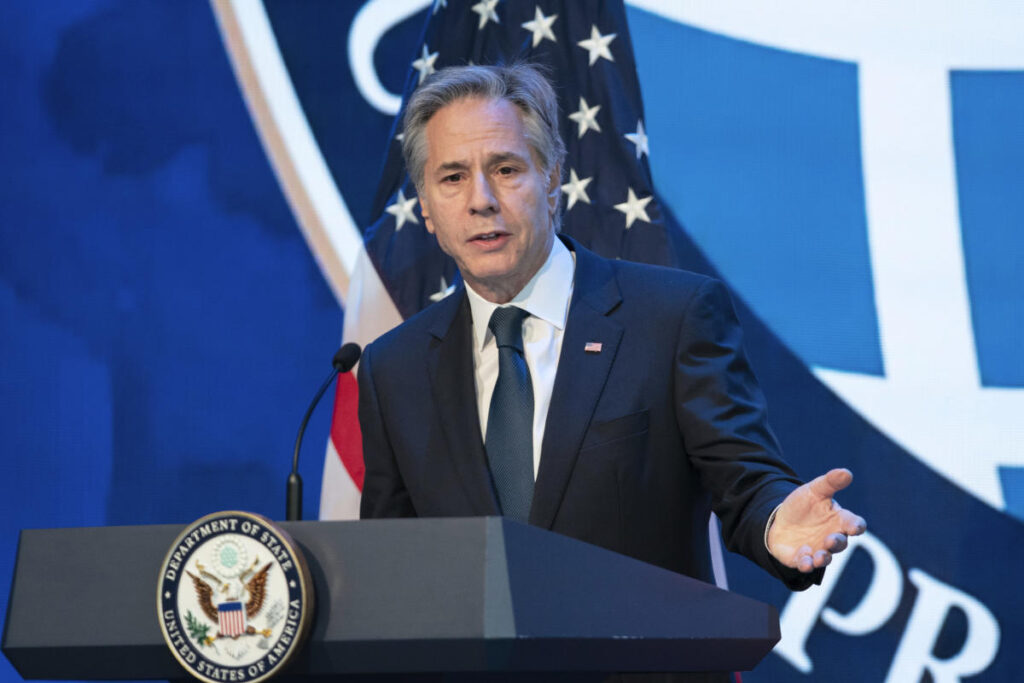Secretary of State Antony Blinken is slated to return to Europe for a pivotal NATO meeting, arguably the last high-level gathering before the transition of power with the Biden administration leaving office in January. The upcoming NATO foreign ministers meeting, scheduled for Tuesday and Wednesday in Brussels, aims to solidify allied support for Ukraine, particularly in light of President-elect Donald Trump’s anticipated return to the White House. Key discussions will center on transatlantic security priorities, particularly as they relate to supporting Ukraine amidst its continued conflict with Russia. The U.S. State Department has emphasized the importance of these meetings, highlighting topics such as enhancing cooperation with NATO’s southern partners and laying the groundwork for an upcoming summit at The Hague.
Under Biden’s administration, substantial efforts have been made to bolster support for Ukraine in its fight against Russian aggression. In recent months, the Biden administration has increased military aid and eased restrictions on the use of U.S. weapons by Ukrainian forces. This proactive approach is aimed at positioning Ukraine favorably for any potential negotiations, especially considering the significant territorial gains made by Russian forces and the assistance they received from North Korean troops. As NATO leaders prepare for their next summit in June, the urgency of these support measures becomes even more pronounced, given the evolving geopolitical landscape.
In stark contrast to Biden’s strategy is that of President-elect Trump, who has expressed skepticism regarding U.S. military assistance to Ukraine. Trump has signaled intentions to reassess or possibly even halt support for Ukraine, which raises concerns among NATO allies as they seek to maintain a unified front against Russian aggression. His appointment of former General Keith Kellogg to mediate efforts to end the conflict suggests a potential shift in U.S. foreign policy that may alter the dynamics of support for Ukraine and the broader European security framework.
One of the anticipated focal points of the Brussels discussions is the necessity for NATO nations to reinforce their collective commitment to Ukraine. Allies are expected to review ongoing military support and discuss strategies to counteract Russian advances. In addition, the meeting will address the importance of solidarity among NATO members, particularly as they navigate the uncertainties that come with a change in U.S. leadership. The commitment to Ukraine’s sovereignty and territorial integrity remains a key priority, and NATO allies are likely to reiterate their support during these discussions.
Following the NATO meetings, Blinken will journey to Malta for a meeting of foreign ministers from the Organization for Security and Cooperation in Europe (OSCE). This gathering is crucial, especially in light of ongoing challenges faced in Ukraine and Georgia, among other regions. The OSCE has a mandate to promote peace and stability, and its ministers will be tasked with evaluating the implications of recent international developments, reinforcing dialogue, and coordinating responses to security threats in Europe and beyond.
In summary, this European trip marks a critical moment for U.S. foreign policy, particularly regarding NATO’s collective response to Russian movements and the future of Ukraine. The outcomes of the meetings in Brussels and Malta will likely influence transatlantic relations and set the stage for how this cooperation evolves under the new U.S. administration. The urgency of supporting Ukraine amidst escalating conflict and potential shifts in U.S. policy amplifies the importance of these high-level discussions and their implications for global security.

